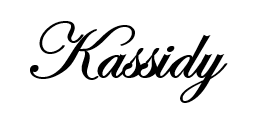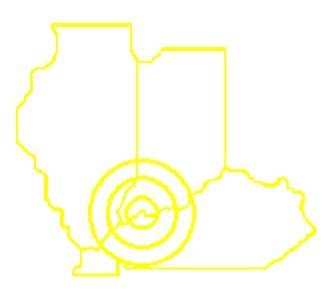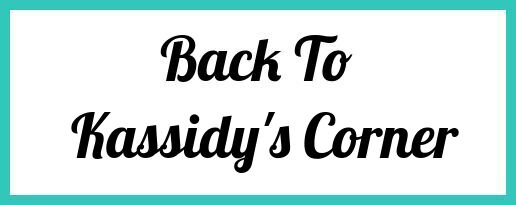
THIS POST IS PART OF THE KASSIDY’S CORNER “CONTENT SURVEY POSTS” SECTION, BASED ON FEEDBACK FROM TSGS READERS LIKE YOU
When it comes to researching, there’s really not much of a replacement for those primary sources–censuses, birth certificates, letters, or diaries. Right? Well, like a lot of things genealogy-related things (okay, and life in general), this question doesn’t have a completely clear answer. Because while it’s true that primary sources offer up valuable information that helps trace your family’s story, some people aren’t tapping into their full researching potential as they overlook one researching method: oral history interviews.

Who to Interview
When you think about oral history, the idea is that you–the researcher–are collecting stories from someone who has incredible information to tell. So, who might that be? Well, for the purpose of family history, it might be an older family member who can recall family reunions back in the 1940s. Or perhaps a great aunt who has vivid memories of your grandparents or great grandparents. Maybe even a cousin who remembers the set of grandparents who died before your were born.
The “who to interview” phase of family history is an important one because who you choose to interview will alter how you conduct the interview and what types of questions you ask (but more on that later). And while most oral histories–at least for genealogists–might be conducted with older family members, that doesn’t always have to be the case. Oral traditions can also be valuable tools for a genealogist (more in the next section), so it might be a great idea to consult both older and younger family members. For example, you might have different memories of your grandmother than a cousin who’s twenty years younger than you. Or maybe your grandfather took you fishing–because that’s your favorite past time–but he told family lore to your younger sibling. Every person has a story to tell, so chances are you’ll have plenty of fascinating people to interview and perhaps some never-before-heard stories to collect!

Oral History vs. Oral Tradition
Oral History: At it’s core, when we’re conducting oral history interviews we’re gathering stories about someone’s life…as they lived it. For example, if you’re interviewing your uncle who served in the Korean War, an oral history interview will involve asking him questions about what he experienced and what his time overseas was like. You might also ask his thoughts about the conflict overall and what his post-war life was like.
Oral Tradition: Chances are, we’ve all got passed-down stories. Grandparents often enjoy regaling their grandkids with tales of by-gone days. Parents who lived through dramatic events might find it rewarding to share their story of perseverance with their son or daughter. When the person who lived through the experience has passed on, the oral traditions often remain…at least for a time.
Let’s bounce back to the example above, about an uncle who served in the Korean War. If this uncle unfortunately passed away before you had a chance to interview him–but you still want to hear about his time overseas–you might be able to reach out to his children for an interview. While your uncle’s kids didn’t serve in Vietnam, they’re likely able to share some stories about their dad’s time in the military. Even if they can’t speak on certain aspect of their father’s service, they may recollect a particular tale that their dad told to them often. In a similar fashion, your great aunt might share stories about your great great grandmother’s experience immigrating to America from Ireland in the 1890s. Since your great aunt didn’t experience the immigration–and you’re hearing it second-hand–this is an oral tradition…not an oral history. For genealogists, both can be valuable, but it’s important to realize that when stories get passed down, the details can get distorted over time.

How to Conduct Oral History Interviews
When it comes to the how-tos of conducting an oral history interview, there are some things to keep in mind. After establishing who you’ll be interviewing, a few next steps include:
Contacting the Interviewee: This one’s probably a given, but once you’ve decided on a family member you want to collect an oral history interview from, it’s time to reach out to them by email, text, or phone. Once they’ve given you permission to interview them, you’ll of course set up a day/time to meet, picking a location that will hopefully allow the interviewee to feel relaxed and limit distractions (a busy coffee shop is probably not the best place for an interview!). Also, for some oral histories I’ve collected, I like to gather a bit of background information about the interviewee (see below). If they’re your family member, chances are you’re already aware of certain information, but knowing when they were born, where they grew up, etc., can help you design applicable interview questions.
Research: To conduct a successful oral history interview with your family member, it’s best not to show up unprepared. Do a bit of research on the interviewee and shape some questions around their life experiences. Recently, I had the opportunity to interview a Vietnam War era veteran who’d served in Germany. If I hadn’t done a bit of research beforehand, I might have asked too broad of questions. But since I inquired about the veteran’s unit and found a bit of information about their service history, I was able to frame my questions around where he was stationed and when. Doing some research, pre-interview, almost always pays off!
Legal Release: I’m taking an oral history class for graduate school, and over my time in the course, I’ve realized that legal releases help protect both the interviewer (you) and the interviewee (the person whose story you’re collecting). If you’ve gathered so much fascinating information from your first cousin that you decide to donate the interview to a local library without your cousin’s consent, this could–understandably–cause some problems. Luckily, Boston Public Library offers a few helpful templates to get you started!
Supplies: Taking notes can be great, but at the end of the day, you’re probably not able to write as fast as the stories are told to you verbally. If you rely solely on note-taking during oral history interviews, chances are you’ll miss out on some key information the interviewee relays. So plan ahead! If you do an audio interview, you’d need to grab a voice recorder and record the interviewee speaking. Or, like my most recent interview, you can opt for a video interview, where the interviewee is visible on camera (I recorded with my phone and it worked well). While both can be great options, I think being able to see the interviewee’s facial expression, body language, and hand gestures enhances the interpretation of these interviews. If you do opt for a video format, I highly recommend investing in some lavalier (aka, clip-on) microphones. I got these JLB microphones for under $15 and they work excellently! If the interviewee speaks low, it’s easier to hear what they say, plus it cuts out some of the background nose.
Questions: When it comes to creating questions for the oral history interview, come prepared to the interview by crafting the questions a few days in advance. While I typically have some questions on-hand, I’ll also ask follow-up questions that might not have been on my initial list. During the interview process, it’s natural that you might want some additional information (Where did Grandma work again? I didn’t know he had that job–tell me about Papaw’s time in the coal mines.). Be flexible so that you have the time to ask any follow-up questions that may arise.

A Few More Tips
Conducting oral history interviews doesn’t have to feel overwhelming! A few more tips to help you out on your new genealogy journey include:
Open-Ended Questions: Avoid questions that can be answered with a simple “yes” or “no” (i.e. Did you enjoy your childhood?). Instead, create questions that are open-ended, questions that encourage the interviewee to reflect more deeply on their experiences. For example: Tell me about what life was like when you were growing up. Where did you go to school? Why did you decide to enlist in the U.S. Army? All of these questions require the interviewee to say more than “yes” or “no,” which means more information may be offered up!
Stay (Mostly) Silent: You’re conducting the interview to gather information about your family member or another individual of interest. That means–as hard as it may be–your job as the interviewer is to guide the interview without inserting your own opinions. For example, if your cousin says that they were Grandma’s favorite, it wouldn’t really be wise to yell out, “That’s not true–Grandma definitely loved me better!” As the interviewer, your job is to listen and gather information–even if you don’t agree with what the interviewee is saying. Now, there might be times when it’s appropriate for you to speak during the interview, such as if the interviewee asks you a question (i.e., When was Grandma born again?) that you might have the answer to. But such instances are going to be more rare, so you’ll mostly need to listen!
No “Mm-hmms”: We’ve probably all been there–after someone says something, you rush in with an “mm-hmm,” “okay,” “yeah,” or another one-word response to fill the silence and show you’ve been listening. While that might be fine for many day-to-day conversations, it’s not the best approach for an interview. If it’s recorded, the “mm-hmm” you say might muffle what the interviewee just said. Even if you can hear the interviewee just fine, no doubt the interjections are overall distracting. There’s a better way to let the interviewee know you’re listening and that they have your attention: smile, nod, or maintain eye contact. Don’t glance at your phone throughout the interview or decide to eat a sandwich. Instead, show–without unnecessary words–that you’re interested in hearing what the interviewee has to share.

In Conclusion
Almost every person has a story to share about their lives. Virtually every family has oral traditions–those family stories–that have been passed down through the generations. As a genealogist, part of your job is making sure that these pieces of history don’t fade along with the person who lived them. It’s important to take action, recording these stories so that they enhance not only your research, but also the research of those who come behind you.
Are oral histories always accurate? Nope, not at all! (Learn more about why here.) But that doesn’t mean they aren’t valuable. By following the information above, I trust that you’ll be ready to track down your family’s story…one oral history interview at a time.
Keep the History Alive!



